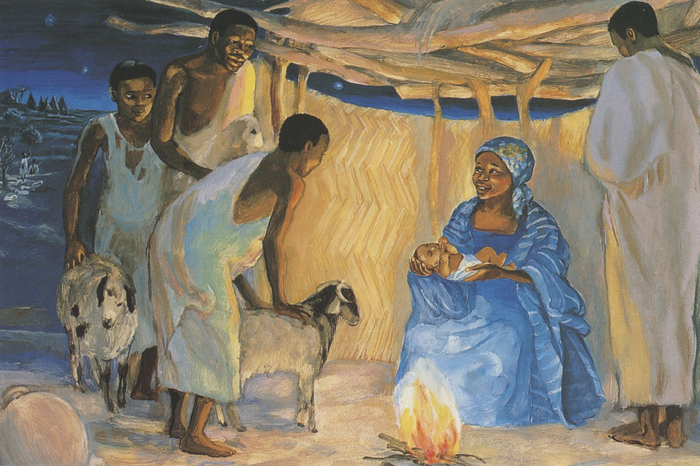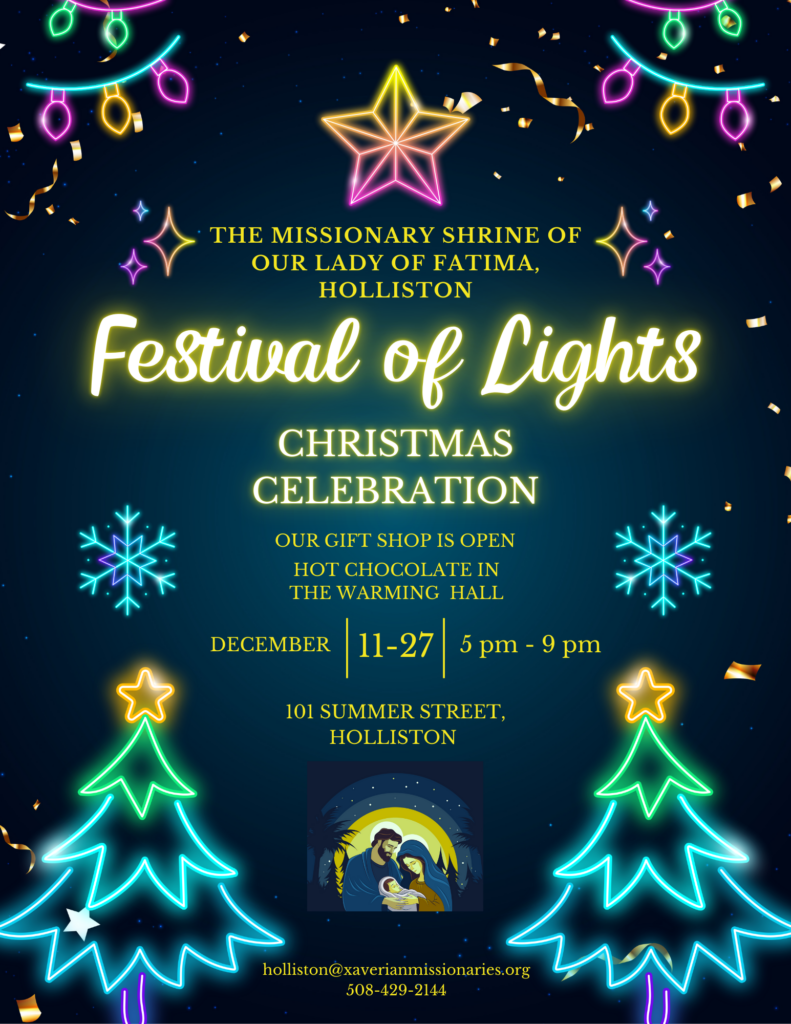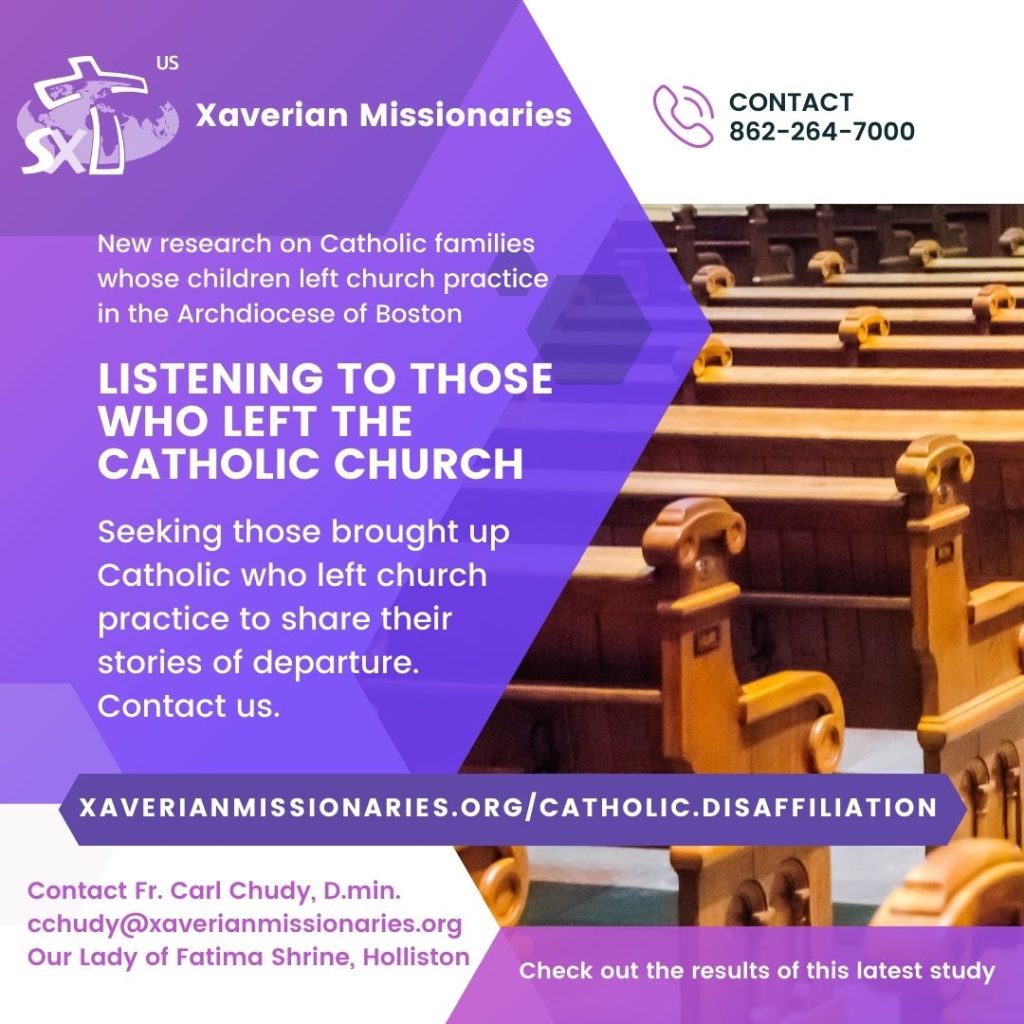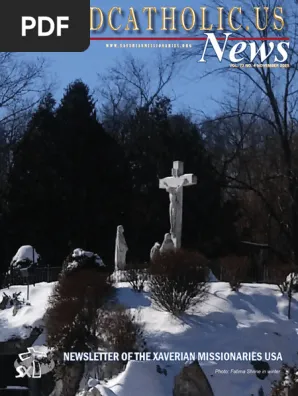Sharing Christ Across Faiths and Cultures
CHRISTMAS AND NEW YEAR’S LETTER from the General Superior of the Xaverian Missionaries

Advent Pilgrimage: Walking the Path of the Virtues of Care of Our Common Home
From The Laudato Si Project of The Missionary Shrine of Our Lady of Fatima
Launch of Episode 1 — “Taiwan: A Mosaic of Religions”
With this video, we launch the series “Taiwan, a Mosaic of Religions”, produced by MissioNET. The first episode, “Religious Diversity in Taiwan,” takes us into the island’s rich multireligious landscape, where syncretism is especially visible in the temples – places where different traditions meet and blend. Taiwanese people do not usually bind themselves rigidly to a single religion; instead, they prefer to preserve and practice their family‑inherited traditions, especially the veneration of ancestors.
Episode 2
Popular devotions to local temple deities sit alongside the calm of Japanese Zen, the non-dogmatic openness of Taoism, and Confucianism’s focus on human relationships. Together, they shape daily life in Taiwan.
Episode 3
In this third episode, “The Christian Faith in Taiwan”, we focus on the island’s first major religious minority: the Catholic Church, numbering about 300,000 faithful – less than 1% of the population. Small in numbers yet significant and well regarded, as described by Fr. Edi Foschiatto, a Xaverian missionary interviewed for this episode.
Episode 4
In this fourth episode, “Islam in Taiwan”, we meet another minority religious community after the Catholics: the Muslim community. Through the interview with Abdullah Cheng, imam of the Taipei Grand Mosque, we discover the rich intercultural variety of Taiwanese Islam: Indonesians, Taiwanese, Central Asians, as well as Muslims from Canada and the United States. The imam emphasizes that in Taiwan, the Muslim community can live its faith freely, both in daily prayer and in public celebrations.
Episode 5
With this fifth episode we conclude the series “Taiwan, a Mosaic of Religions”, produced by MissioNET.
In this final video we offer an overall look at the island’s religious freedom and diversity, showing how different traditions can live in dialogue and in harmony.
The testimony of Ven. Xian Yue Shih, CEO of the Museum of Religions in Taipei, helps us see how this peaceful coexistence represents not only a unique treasure for Taiwan, but also a source of inspiration for the entire world.
LISTENING TO THOSE WHO LEFT THE CATHOLIC CHURCH
In America, the landscape of the Catholic Church is changing dramatically, as is all religious communities and institutions. The new mission of the Xaverian Missionaries seeks to engage with our Catholic tradition to all outside of the church, Christianity, and even religion itself. The departure of those who were formed in the Catholic faith is felt in every parish. Disaffiliated families make up the majority of Catholic communities throughout the country.
We listen to those who left the church and sacramental practice with loving empathy.
We root ourselves in these departure narratives, learning about their world and how they walk in it.
We gain deeper insight into the needs, longings, and desires of young people and others. In dialogue with our tradition, we can change our pastoral maps and parish cultures, beginning in Catholic families.
Catholic Interfaith Solidarity
Check out the latest resources and opportunities for Catholics and others to share our lives, faith, and friendship with people of other faiths and traditions. Click here. Other resources for interfaith dialogue may be found here.








